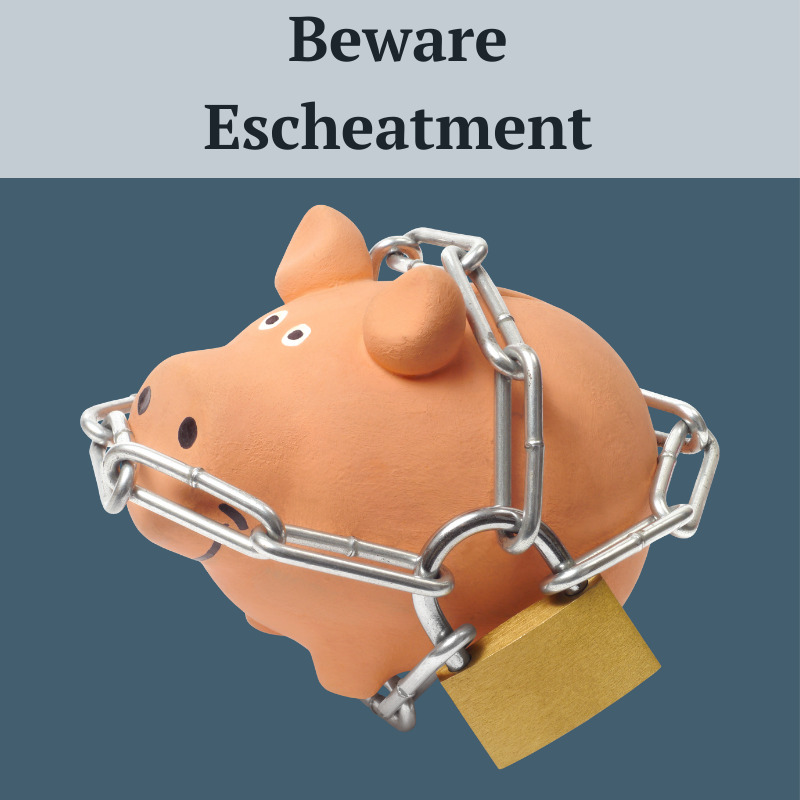The letter took me by surprise. I was the treasurer for our volunteer fire department. We had a checking account for day to day activities and a savings account for future use. I had let the savings account sit untouched for several years and received a letter from the bank that the account was about to be turned over to the state as unclaimed property. How could the account be abandoned? I read the account statement monthly. So began my education into the world of escheatment. This word should bring two questions to your mind:
- What is escheatment?
- Should I be concerned?
In answer to the first question, “escheatment refers to the process of turning custody of abandoned assets or accounts over to a state authority.”[i] There are laws on the book of all fifty states that deal with abandoned property. Some of these laws are over 200 years old. Each state has an abandoned property division that holds assets until the rightful owner claims them. Assets that are unclaimed may eventually be liquidated and added to the state’s coffers. These laws serve many beneficial purposes. For instance: they help consumers reestablish access to an account they may have lost track of, and they help return abandoned real estate to productive use. The dormancy period for most states is between three and five years.[ii] Recently, states have become more aggressive in enforcing these laws with financial accounts, which begins to answer the second question.
First of all, there is no need to worry about your accounts managed by John G. Ullman & Associates (JGUA) since they are actively managed. But you may have other accounts that could be in danger:
- Your rainy day savings account at a local bank that you have not touched because a rainy day has not come recently
- The 401k that was set up by a previous employer, that was rolled over to an IRA when you left the company, that you’ve ignored because you are nowhere near retirement age
- That mutual fund you inherited from your uncle.
Each of these is in danger of being escheated eventually. When an account is sent to the state it can be an ordeal to retrieve the funds. You will need to locate and contact the proper department and provide information, and perhaps documentation, that the account is rightfully yours. The process of returning your account could take weeks, months, or even years. And you may lose money in the process. The state will return the asset to you but will keep any dividend or interest earned during the time the account is with the state. Now may be a good time to go online and locate the unclaimed property division of your state. They may be holding something you didn’t know was missing.
The key to keeping your accounts out of the state’s hands is in the phrase “shareholder initiated activity.” You have to do something to keep an account active. Anything the company sends you, a statement or a regularly occurring transfer to your bank account, is not “shareholder initiated activity”. But keeping your account active is quite simple and there are a number of ways to do so. You can call the company, pass through their security procedures, and ask them to note your call to keep the account active. Many people put a note in their calendar to call financial institutions once a year for this purpose. You can access your account online. You can send a letter to the company or cash a check they send you. You can add money to the account. It is your action that keeps an account active. Another option is to talk to your JGUA Advisor, perhaps it is time to put that stray account under the JGUA umbrella.
Sometimes, keeping track of your various financial accounts can be a daunting prospect, but you need to be proactive. Remember, Beware Escheatment.
[i] https://www.sec.gov/oiea/investor-alerts-and-bulletins/ib_escheatment
[ii] Research your state at unclaimed.org, the website for the National Association of Unclaimed Property Administrators







